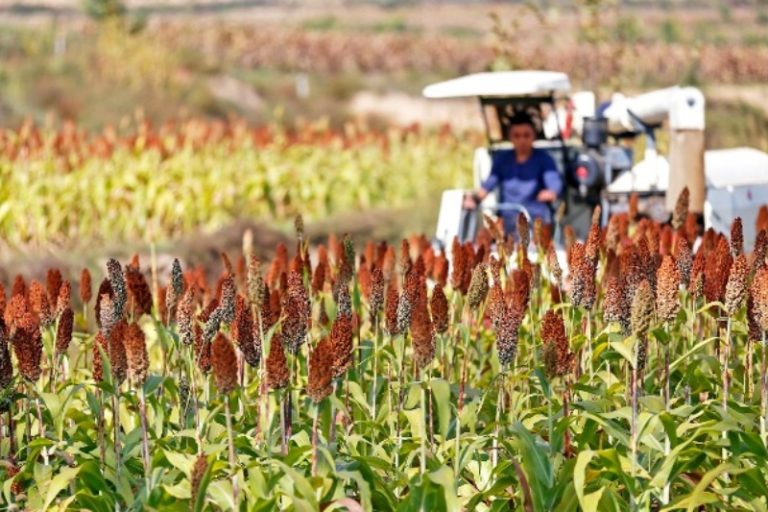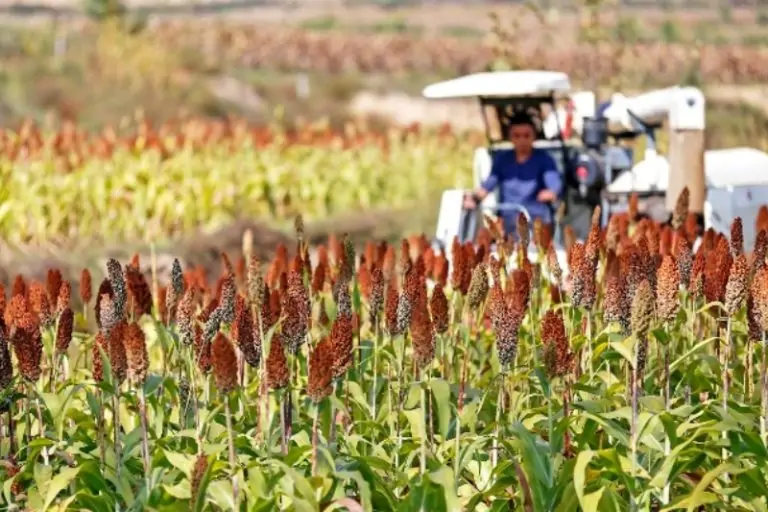

a bountiful harvest sorghum celebrates culture and nourishment in somalia
In Somalia, sorghum is more than just a grain; it is a symbol embedded in the fabric of the nation’s culture. It is a resilient crop, thriving in an arid and unpredictable climate. Sorghum cultivation dates back centuries, providing sustenance to generations of Somalis. Its versatility extends from food security to fodder for livestock, making it an indispensable part of the agricultural landscape.
In Somali cuisine, sorghum takes center stage in a myriad of dishes. From the aromatic injera bread to the hearty porridge known as soor, sorghum weaves a tapestry of flavors. Injerais is a staple, its tangy sourness complementing savory stews and curries. Soor embodies comfort food, with its creamy texture and sweet taste offering a nourishing escape in times of need.
Sorghum’s adaptability is a reflection of Somali resilience. This drought-tolerant crop requires minimal water, making it an ideal choice for Somalia’s arid regions. Its nutritional value is equally remarkable, providing essential vitamins, minerals, and fiber. Sorghum’s cultivation and consumption contribute to the preservation of traditional knowledge and promote a harmonious relationship between Somalis and their environment.
The sorghum harvest is a time of great celebration in Somalia. It is a communal event where families and neighbors gather to reap the fruits of their labor. The harvested sorghum is used to prepare special dishes, such as the festive porridge known as haro. Haro is shared among the community, fostering bonds and strengthening the social fabric of Somali society.
Sorghum’s drought tolerance and nutritional value make it a crucial grain for food security in Somalia. During times of scarcity, sorghum provides a reliable source of nourishment. Its versatility allows for storage and preservation, ensuring that communities have access to food throughout the year. Sorghum’s ability to thrive in harsh conditions is a testament to its importance in sustaining Somali livelihoods.
While sorghum is deeply rooted in Somali culinary traditions, it is also inspiring contemporary chefs. Its unique flavor and nutritional profile are being explored in innovative dishes that blend traditional techniques with modern gastronomy. Sorghum flour is used to create flavorful breads, pastries, and even pasta, showcasing its versatility and potential for culinary experimentation.
Beyond its cultural and nutritional significance, sorghum plays a vital role in Somalia’s economy. It is a major cash crop, providing income for farmers and supporting rural livelihoods. Sorghum is also used to produce a variety of value-added products, such as flour, syrup, and biofuels. These industries have the potential to create jobs and stimulate economic growth, contributing to the overall development of Somalia.
Sorghum’s drought tolerance and low water requirements make it an environmentally friendly crop. Its cultivation helps to conserve soil and prevent erosion, protecting the delicate ecosystems of Somalia. Sorghum’s deep root system also helps to improve soil structure and fertility, contributing to the long-term sustainability of agricultural practices.
Sorghum is more than just a crop in Somalia; it is a symbol of the nation’s rich agricultural heritage. Its cultivation and consumption have been passed down through generations, preserving traditional knowledge and practices. By continuing to grow and use sorghum, Somalis are safeguarding their cultural identity and ensuring that this valuable grain remains a cornerstone of their society for generations to come.
The U.S.-based driver training company Zutobi analyzed road safety worldwide and found South Africa stays last in driving danger since…
The Basketball Africa League (BAL) returns for its 2025 season with exciting changes and developments. Since 2019 the NBA-linked basketball…
The Somali president supports their military forces to eliminate the threats from Al-Shabaab, ISIS, and Al-Qaeda. The Somali National Army…
UAE President Sheikh Mohamed bin Zayed Al Nahyan held talks with President Faustin Archange Touadéra of the Central African Republic…
African football teams struggle intensely in the World Cup Qualification rounds to earn their place on the international football stage.…
The journey toward the 2026 FIFA World Cup is rapidly intensifying for all African teams, who now hold a historical…
This website uses cookies.